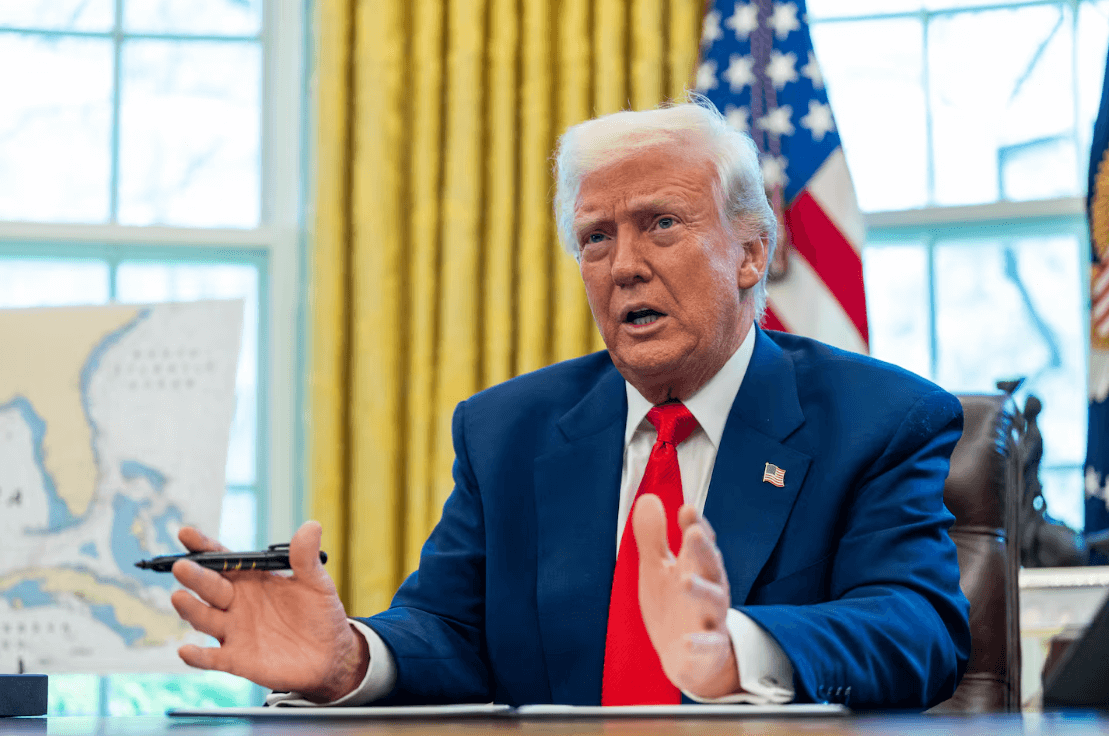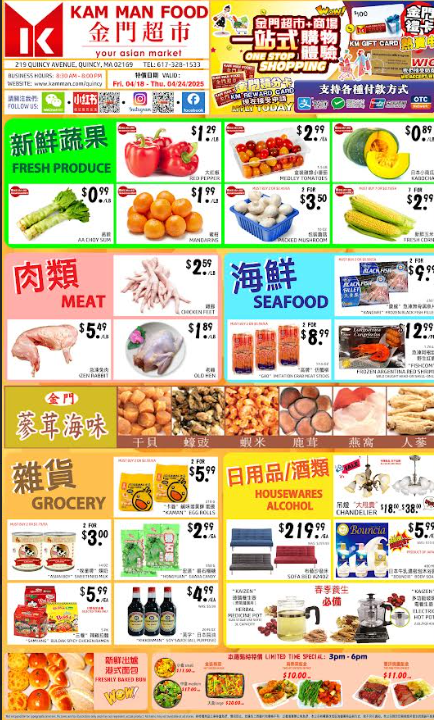中国将把对美国商品的关税从 84% 提高到 125%,这是贸易战升级的最新举措

【中美创新时报2025 年 4 月 11 日编译讯】(记者温友平编译)中国周五宣布,将对美国商品征收的关税从 84% 提高到 125%——这是世界两大经济体之间不断升级的贸易战的最新举措,这场贸易战已引起市场不安,并引发了人们对全球经济放缓的担忧。美联社对此作了下述报道。
美国总统唐纳德·特朗普本周暂停了对其他国家的进口关税,但他提高了对中国的关税,目前总额已达145%。中国谴责该政策是“经济霸凌”,并承诺将采取反制措施。新的关税将于本周六生效。
中国财政部发言人在宣布新一轮关税的声明中表示,华盛顿一再提高关税“将成为世界经济史上的一个笑话”。“但如果美方执意继续实质性侵犯中方利益,中方将坚决予以反制,坚决斗争到底。”
中国商务部表示将就美国关税再次向世界贸易组织提起诉讼。
据中国国家电视台中央电视台报道,中国国家主席习近平在会见西班牙首相桑切斯时表示:“关税战没有赢家。70多年来,中国始终自力更生、艰苦奋斗,从不依靠任何人的恩惠,也不惧怕任何不合理的打压。”
中国外交部长王毅周五表示,中国坚决反对特朗普的关税,不仅是为了捍卫自身的权益,也是为了“维护国际社会的共同利益,确保人类不会回到强权即公理的丛林世界”。
王毅在北京会见国际原子能机构总干事拉斐尔·马里亚诺·格罗西时发表了上述讲话。王毅表示,中国将“同各国一道,共同抵制世界上一切倒退行为”。
特朗普反复无常的举措引发了股市和债市的恐慌,并导致一些人警告美国可能陷入衰退。特朗普暂停对大多数国家加征关税后,市场略感宽慰,但担忧依然存在,因为美国和中国分别是世界第一和第二大经济体。
BMO资本市场高级经济学家詹妮弗·李周五写道:“随着全球两个最大、最强大的国家继续以越来越高的关税进行反击,这场不断升级的贸易战导致世界陷入衰退的风险正在上升。没有人真正知道这一切何时会结束。”
中国的关税将影响大豆、飞机及其零部件和药品等商品——这些商品都是中国从美国进口的主要商品。与此同时,北京方面上周暂停了从一些美国公司进口高粱、家禽和骨粉,并对对各种技术至关重要的稀土矿物实施了更多的出口管制。
与此同时,美国从中国进口的主要产品包括电脑、手机等电子产品、工业设备和玩具——由于关税目前达到 145%,消费者和企业可能会看到这些产品的价格上涨。
特朗普周三宣布对中国征收125%的关税,但不包括对中国在芬太尼生产中所扮演的角色征收20%的关税。
白宫官员希望进口税能够通过将生产转移回美国来创造更多的制造业就业机会——这是一个政治上冒险的权衡,即使能够实现,也可能需要数年时间。
题图:2025年4月9日,星期三,特朗普总统在华盛顿白宫椭圆形办公室签署行政命令时发表讲话。ERIC LEE/NYT
附原英文报道:
China will raise tariffs on US goods from 84% to 125%, the latest in an escalating trade war
By The Associated PressUpdated April 11, 2025
President Trump speaks as he signs executive orders in the Oval Office of the White House in Washington, on Wednesday, April 9, 2025. ERIC LEE/NYT
Follow live updates.
BEIJING (AP) — China announced Friday that it will raise tariffs on U.S. goods from 84% to 125% — the latest salvo in an escalating trade war between the world’s two largest economies that has rattled markets and raised fears of a global slowdown.
While U.S. President Donald Trump paused import taxes this week for other countries, he raised tariffs on China and they now total 145%. China has denounced the policy as “economic bullying” and promised countermeasures. The new tariffs begin Saturday.
Washington’s repeated raising of tariffs “will become a joke in the history of the world economy,” a Chinese Finance Ministry spokesman said in a statement announcing the new tariffs. “However, if the U.S. insists on continuing to substantially infringe on China’s interests, China will resolutely counter and fight to the end.”
China’s Commerce Ministry said it would file another lawsuit with the World Trade Organization against the U.S. tariffs.
“There are no winners in a tariff war,” Chinese leader Xi Jinping said during a meeting with the Spanish Prime Minister Pedro Sanchez, according to a readout from state broadcaster CCTV. “For more than 70 years, China has always relied on itself … and hard work for development, never relying on favors from anyone, and not fearing any unreasonable suppression.”
Chinese Foreign Minister Wang Yi on Friday said China stands firm against Trump’s tariffs not only to defend its own rights and interests but also to “safeguard the common interests of the international community to ensure that humanity is not dragged back into a jungle world where might makes right.”
Wang made the remarks when he met Rafael Mariano Grossi, director general of the International Atomic Energy Agency in Beijing. Wang said China will “work together with other countries to jointly resist all retrogressive actions in the world.”
Trump’s on-again, off-again measures have caused alarm in stock and bond markets and led some to warn that the U.S. could be headed for a recession. There was some relief when Trump paused the tariffs for most countries — but concerns remain since the U.S. and China are the world’s No. 1 and No. 2 economies, respectively.
“The risk that this escalating trade war tips the world into a recession is rising as the two largest and most powerful countries in the world continue to punch back with higher and higher tariffs,” Jennifer Lee, a senior economist at BMO Capital markets, wrote Friday. “No one truly knows when this will end.”
Chinese tariffs will affect goods like soybeans, aircrafts and their parts and drugs — all among the country’s major imports from the U.S. Beijing, meanwhile, suspended sorghum, poultry and bonemeal imports from some American companies last week, and put more export controls on rare earth minerals, critical for various technologies.
The United States’ top imports from China, meanwhile, include electronics, like computers and cell phones, industrial equipment and toys — and consumers and businesses are likely to see prices rise on those products, with tariffs now at 145%.
Trump announced on Wednesday that China would face 125% tariffs, but he did not include a 20% tariff on China tied to its role in fentanyl production.
White House officials hope the import taxes will create more manufacturing jobs by bringing production back to the United States — a politically risky trade-off that could take years to materialize, if at all.

